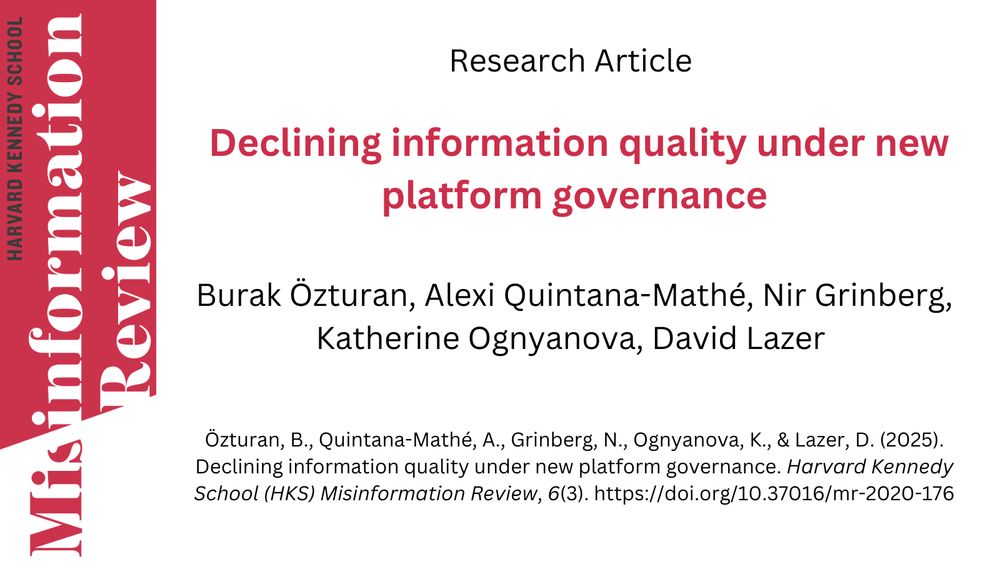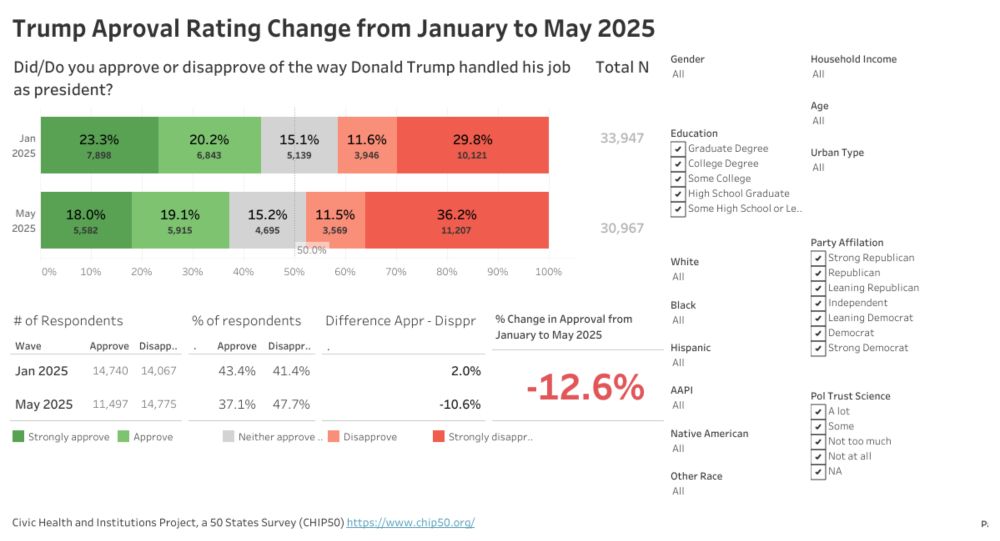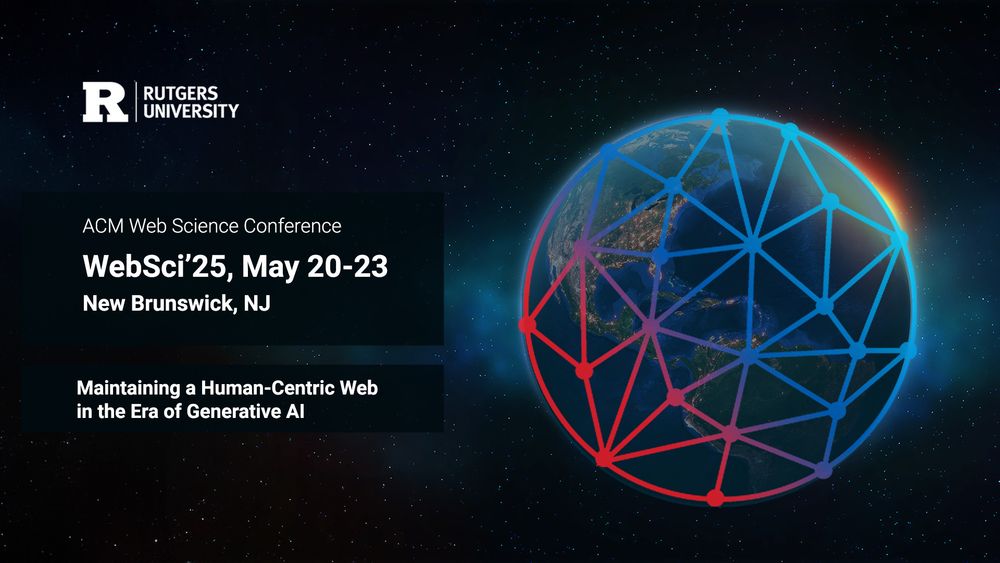
Associate Professor at the School of Communication & Information, Rutgers University | Research on politics, tech, trust, misinformation network science, computational social science | PI at http://chip50.org, http://covidstates.org, http://naiom.net .. more
Associate Professor at the School of Communication & Information, Rutgers University | Research on politics, tech, trust, misinformation network science, computational social science | PI at http://chip50.org, http://covidstates.org, http://naiom.net

We examine trust in AI, the companies that use it, and the content it generates. We also measure how much people know about it. (🧵1 of 6)


Reposted by David Lazer, David Darmofal

Reposted by Katherine Ognyanova

1) Generally, people see a universities as important to various high priority domains (economic growth, health, etc)

Reposted by Katherine Ognyanova

Publish with us: academic.oup.com/pnasnexus/pa...
Reposted by Katherine Ognyanova

Reposted by Katherine Ognyanova, Jana Lasser
-a great deal: harris +8
-a lot: harris +5
-a moderate amount: trump +1
-a little: trump +8
-none at all: trump +15

The American Political Science Association (APSA) is deeply concerned about recent executive actions that have had troubling implications for research funding and academic freedom. In January,…

Reposted by David Lazer

Reposted by Katherine Ognyanova

Reposted by David Lazer

Reposted by Katherine Ognyanova

Source, CHIP50:
www.chip50.org/reports/amer...
Led by @ognyanova.bsky.social, @davidlazer.bsky.social, @royperlis.bsky.social + more.




www.chip50.org/blog/whose-a...
Reposted by Katherine Ognyanova

Happy to be part of this great #ica25 panel. With answers and many more questions
@noshir.bsky.social @teachguz.bsky.social @ognyanova.bsky.social and Peng, Lu, Matthes and 🙋
Reposted by Katherine Ognyanova, Aaron Shaw

Post your questions for panelists here: forms.gle/m2mXY3xFafAX...
Reposted by Katherine Ognyanova
We hope you'll join us at #Rutgers this May for this interdisciplinary conference!
Register at: www.websci25.org
cc:
@websciencetrust.bsky.social, @noshir.bsky.social
Reposted by Katherine Ognyanova

Learn more at: lsc.wisc.edu/2025/01/17/l...

Reposted by Katherine Ognyanova, Michael T. Heaney


We have a great lineup of network analysis workshop instructors: @michaeltheaney.bsky.social, @ognyanova.bsky.social, Shahryar Minhas, & Cassie McMillan.
sites.google.com/view/confpol...

Reposted by Katherine Ognyanova
Reposted by Katherine Ognyanova, Michael T. Heaney, Philip Leifeld
Reposted by Katherine Ognyanova, J. Ignacio Criado, Sandra González‐Bailón
Reposted by Katherine Ognyanova



